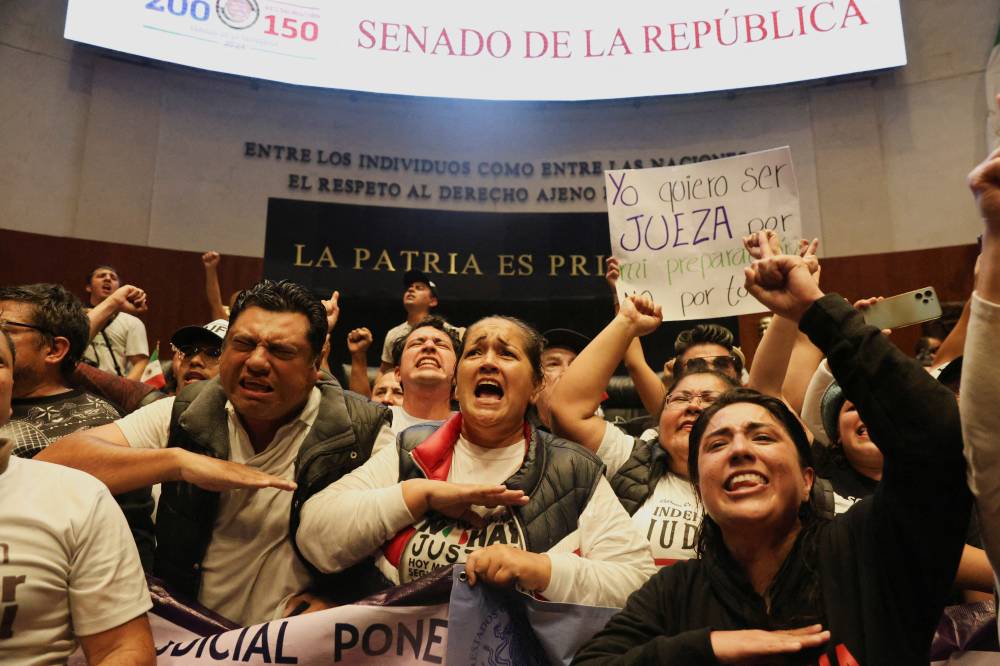Judicial reform gets general approval from Mexican Senate

MEXICO CITY — Mexico’s Senate gave general approval early Wednesday to a sweeping judicial reform that will overhaul the country’s judiciary by electing judges by popular vote, a profound transformation that critics fear could threaten the rule of law and damage the economy.
The Senate will now move to debating reservations raised by lawmakers before giving final approval to the reform proposed by outgoing President Andres Manuel Lopez Obrador and which passed the lower house last week.
Senators voted 86 to 41 in favor of the general approval.
Miguel Angel Yunes of the opposition PAN party earlier Tuesday dramatically broke party ranks to say he would favor the overhaul, effectively giving the ruling Morena party and its allies the two-thirds majority needed to pass the constitutional reform.
Mexico’s major trading partners, the United States and Canada, have warned the overhaul could undermine the USMCA trade pact and negatively impact investment.

‘Traitors’
The reform has also spooked markets, with Mexico’s peso weakening 17 percent since the June 2 elections that saw the ruling party Morena win by a landslide.
As senators discussed the reform on Tuesday, demonstrators broke into the Senate building waving Mexican flags and crying “traitors,” forcing the session to be paused.
Opposition lawmakers accused the ruling bloc of deploying underhanded tactics to secure the necessary votes, alleging a senator had been detained in an attempt to stop him voting while others had been pressured or offered bribes.
The ruling Morena party denied the allegations.
Lopez Obrador hails the overhaul as vital to maintaining the integrity of Mexico’s judiciary and ensuring it serves the people rather than criminal interests. Critics, though, worry it is an alarming concentration of power by ruling party Morena.
Fallout
The backbone of the constitutional reform, which the lower house approved last week, calls for the election by popular vote of more than 6,500 judges and magistrates, including the Supreme Court.
The reform also reduces the number of Supreme Court judges to 9 from 11, cuts back the length of their terms to 12 years, abolishes a minimum age requirement of 35, and halves necessary work experience to 5 years.
Sheinbaum, who takes office on Oct. 2, will be tasked with managing the fallout of the reform, which risks dominating the first months of her term.
Reuters, the news and media division of Thomson Reuters, is the world’s largest multimedia news provider, reaching billions of people worldwide every day. Reuters provides business, financial, national and international news to professionals via desktop terminals, the world's media organizations, industry events and directly to consumers.
















